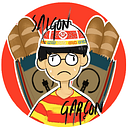HOW CAN I FORGET YOU?
photography by Annie Chung
I haven’t seen 성은 in two years. All this time, I’ve thought about all the ways we would paint together. With images, crafting them in our hands, snipping and cutting, and spilling them out with our mouths, over coffee, over booze, over each other bathed in the run-wild nature of what it means to be twenty and untired and unbored with the world.
We ended our afternoon at Annie Chung’s exhibit, HOW CAN I FORGET YOU?
There are some images you never forget. There is one in my mind, always on the verge of forgetfulness and remembrance, in the haze of in-betweens that flourish every time I am grazed with the bite of passion. It is of you in the hallway of your in-law on the way up to your bedroom. Nude and blurry and covered in hickies I gave you. You have one hand over your crotch, one hand over your face. To protect, to hide. Bashful.
But here, nothing is hidden. Everything is for show. We peek into the very ways Annie loves. Her friends. All there in natural habitats. Surrounded by kisses and cigarettes. Wine and coffee. Up close and personal, skin skin. Chung’s photography pays homage to honoring friends, cherishing the tiny moments that count towards an everlasting joy, the very notion that friends are forever.
At the top of the gallery, a reception was held with wine and small bites, and a sunset that quenched breezes out of the day. These were all her friends. Carefree and cool, exuberant, excellent. Laughter from all sides. Inside jokes in every corner. You could understand why Annie shoots on film, why she decides to capture moments in film grain and flash, to catch love and innocence doe-eyed and eternal.
Similar in tone, and mutual in social circles, Annie knows my friend Ahraun, whom I used to work with at Uniqlo in downtown San Francisco. In between break times, he always had a tattered copy of a Murakami book with him. The first time I met him, he was reading Kafka on the Shore. The pages yellowed, the paperback so soft it could break. Ahraun is also a photographer who works in the same language as Annie. Catching the care-free. I think about All About Lily Chou Chou, a bit of Wong Kar Wai, the very end of Kafka On the Shore, the way I read it at sixteen and wanted to ride my bike out at sunset across the Santa Ana damn, the wind under my sweat, the taste of freedom.
“There’s no such thing as freedom,” a friend recently told me. “Only the taste of it.” We were talking about his recent reading of Heaven by Mieko Kawakami, the release into which nature provides with its tremendous overgrowth and bearing, the way land goes on and on and emits this very space of needing not to belong anywhere, to go beyond body and the responsibility of it, to be yonder. When he finished this Kawakami book, I had just finished Sula by Toni Morrison where freedom means the act of choice. How we depend on instinct. No commitments, no connections. Freedom, Morrison says, is the ability to choose your responsibilities. Not having responsibilities. But to be able to choose what you want to be responsible for.
성은 and I parted ways as I was on the way to dinner. She wanted to stay, to surround herself with the company of artists. In some ways, it felt like letting go. In some ways, it hurt. Because our talks of art were unfinished. There was still so much to go on about, so much history to catch up on. There was still so much of her that I needed but knew, for another time. So, time stretched and pushed us away from each other, creating an evening breeze that wiped the sweat from my brows and I turned the corner, keeping her in my white-wined auto-memory — an overly-romantic condition where I immediately create memory out of a moment that just happened. I’m hopelessly romantic like that.
In all of these images, in the way a cigarette is gripped between lips or the way a body is woken up and outstretched, we see all the ways Annie captures all the little freedoms of her friends. You see what they’re responsible for. For self. For self respect. And you see the ways in which Annie understands this freedom. Though her friends are there, behind the camera, in the shot, perpetual in frame, she lets them breathe, suck in the air around them to understand the possibility in choosing responsibilities. It’s with the camera that Annie momentarily detaches herself from the idea of friendship, the very connection, to make freedom aromatic. A sense, an air. How can I forget you? Sometimes you have to take a few steps back to unlove a lover to let love roam free.
How Can I Forget You? By Annie Chung runs from June 6th to July 1st at HOQICM.
Entry is free, but please check HOQICM’s instagram for any updates.
